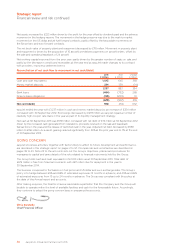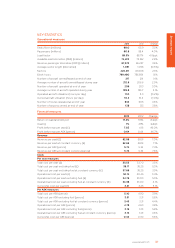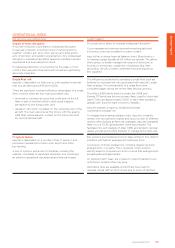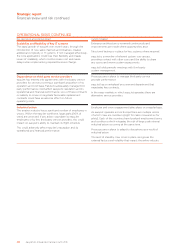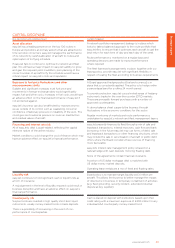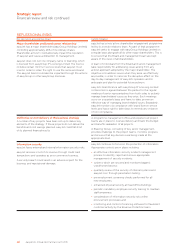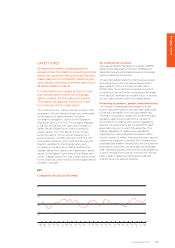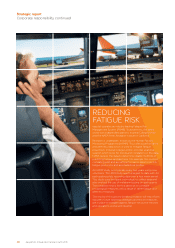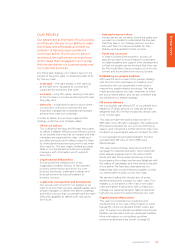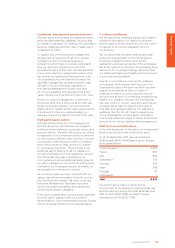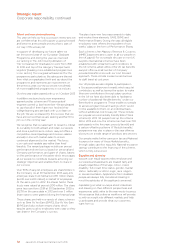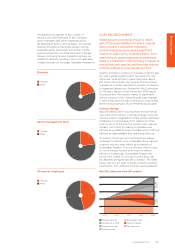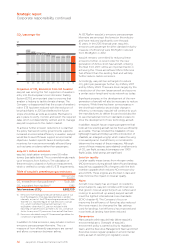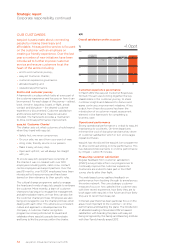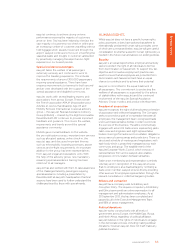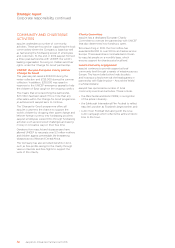EasyJet 2013 Annual Report Download - page 48
Download and view the complete annual report
Please find page 48 of the 2013 EasyJet annual report below. You can navigate through the pages in the report by either clicking on the pages listed below, or by using the keyword search tool below to find specific information within the annual report.
46 easyJet plc Annual report and accounts 2013
REDUCING
FATIGUE RISK
easyJet operates an industry leading Fatigue Risk
Management System (FRMS). To achieve this, the airline
works with independent partners, Imperial College London
and the NASA Ames Research Institute in California.
Research is undertaken, known as the Human Factors
Monitoring Programme (HFMP). This collects performance
and alertness data which is used to mitigate fatigue
proactively. Imperial College London provides analytical
support which looks for trends and correlations in the data.
NASA reviews the data to determine reliable methods of
predicting fatigue and alertness. For example, this involves
correlating pilot and aircraft performance data to identify
fatigue precursors and associated risk profiles.
An HFMP study runs typically every two years using crew
volunteers. The 2013 study was the largest to date with 44
participating pilots recording data over a four week period.
This study used the latest technology to collect data and
also involved the use of melatonin testing on participants.
The melatonin test is the first attempt to correlate
physiological measures with a range of other fatigue and
alertness measures.
The results of this ground breaking research will help inform
easyJet’s future rostering strategies and ensure measures
are in place to mitigate against fatigue risk as the network
and operations evolve and develop.
Strategic report
Corporate responsibility continued


